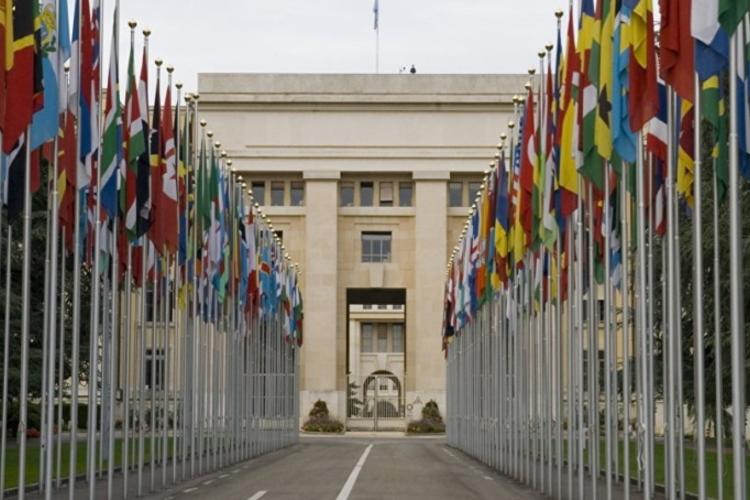Pertaining to the results of the 41st round of the Geneva International Discussions
October 10-11, 2017 saw a regular round of the Geneva International Discussions on Security and Stability in Transcaucasia. A delegation from the Republic of South Ossetia, headed by Murat Dzhioev, the Plenipotentiary of the President of the Republic of South Ossetia on post-conflict settlement, delegations from the Republic of Abkhazia, Georgia, the Russian Federation and the USA as well as representatives of the EU, the UN and the OSCE took part in negotiations.
As usual, the discussions were held in two working groups: on security and humanitarian issues.
Development of the joint document, which would provide guarantees for non-use of force by Georgia against South Ossetia and Abkhazia, as well as maintaining regional security and stability were the main subjects for discussion in Working group I. South Ossetian representatives suggested agreeing and admitting at the round a joint statement of all participants on commitment to the principle of non-use of force - an interim document, which wording has been under consideration for several rounds. Such a document would allow fixing the positions of each party and getting to the work on the main objective of the Discussions – development of bilateral international agreements on non-use of force within the framework of general security situation in Transcaucasia, which would have firm international warranties for implementation.
It was suggested to continue finalizing the wording of the statement and button it up by the coming round.
Representatives of South Ossetia expressed concern of NATO military enlargement in Georgia in general and NATO - Georgia joint military trainings, aimed at exercising joint offensive operations with usage of heavy military equipment from the USA and other partners of the Alliance, in particular.
During the discussion on stability and security about the border between South Ossetia and Georgia, the participants marked the absence of serious incidents. At the same time the provocative activity of Georgian party in territories adjacent to the border – actions, ranger patrols, intentional violations of the border, including by representatives of security agencies of Georgia, as well as intentional misrepresentation of facts in mass media were noted by South Ossetian representatives.
In this regard South Ossetian delegates once again reminded to the Georgian party about the necessity to get to joint works on delimitation and demarcation of the state border between the Republic of South Ossetia and Georgia.
The participants of the Discussions positively assessed the activity of the IPRM as an important factor of maintaining stability and security about South Ossetian-Georgian border. The productivity of the “hot line” organized upon the Mechanism was emphasized as well.
A thorough conversation on humanitarian issues took place. Much attention was drawn to the destiny of the unaccounted for citizens of the Republic of South Ossetia. During the discussion international observers assured the participants that the investigation of the case of South Ossetian citizens, lost in territory of Georgia, would further be conducted by an independent international expert.
During the discussions in both working groups the issue of Eastern Ossetia (Tyrsygom, Kudycom and the Kob hollow), which currently is under Georgian control, was put on table. The closest attention in both working groups was drawn by South Ossetian participants to the facts of unmotivated refusals of admission into the territory of Georgia made by the Georgian authorities to the Ossetians, natives of the Kazbegi region, who cannot get access to their ancestral settlements for several years already. Cases of unlawful expropriation of homes and lands belonging to the Ossetians were also pointed out. These actions of Georgian authorities were considered by South Ossetia as gross and cynical violation of fundamental human rights.
During the discussion on cultural heritage, South Ossetian participants once again have drawn attention to the problem of preservation of those Ossetian historical-cultural monuments that are located on territory of Eastern Ossetia, which currently is under Georgian control. The Ossetians who were driven out are not allowed to go there. Once again the Ossetian representatives called for Georgian side to allow experts to examine and evaluate the conditions of monuments of the Ossetian historical architectural heritage, located in Tyrsygom, Kudycom and the Kob hollow of Eastern Ossetia.
The problem of refugees wasn’t discussed within the round, as renewal of negotiations on this subject would become possible only when Georgia gives up turning artificially the problem into a political issue.
The next meeting in Geneva is preliminary scheduled for December 2017.
October 12, 2017, Geneva
